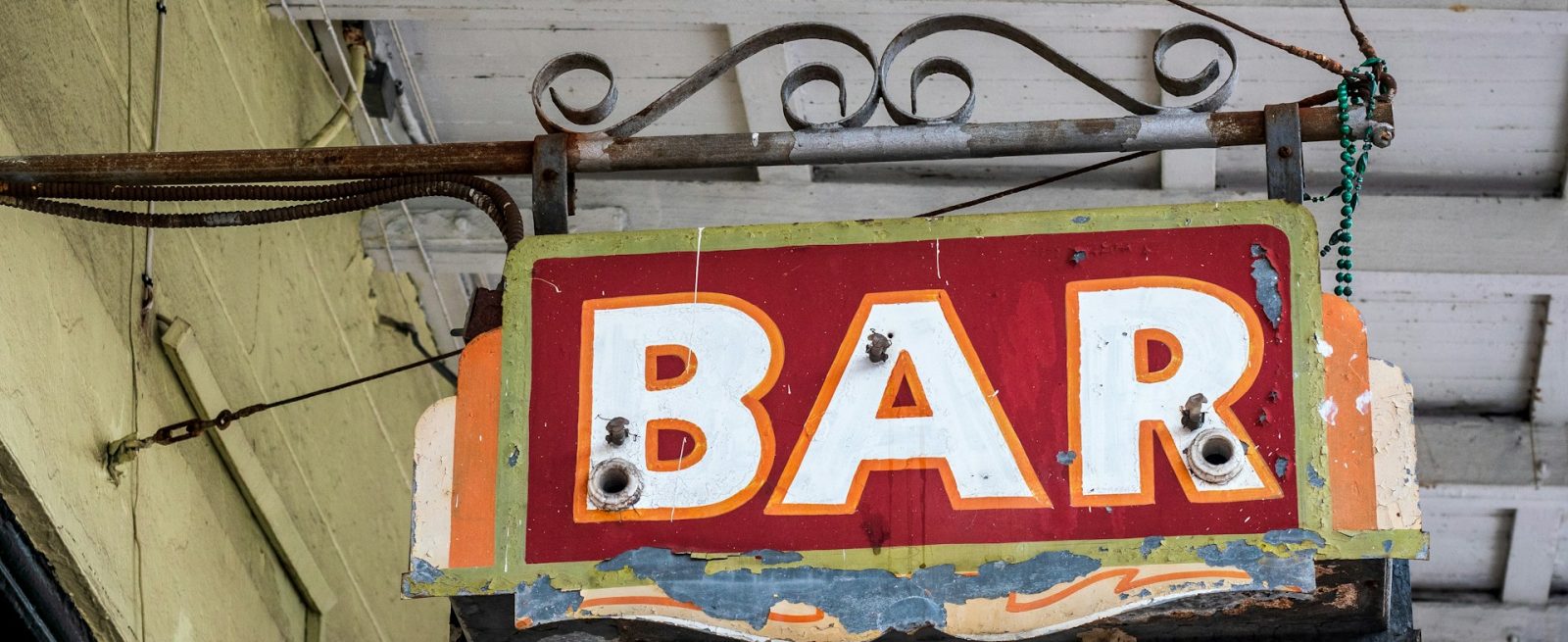Owning a Dive Bar Will Break You (If You Let It)
5 Min Read By Marc Griffiths
People have this picture in their head about owning a dive bar — whether it’s in New York, New Orleans, or the backstreets of Bristol.
They see themselves leaning on the end of the counter, under the glow of some battered neon, sliding a whiskey to a regular like they’ve been doing it all their life. There’s a jukebox in the corner that hasn’t been touched since the ’90s, the floor’s a little sticky but in a comforting way, and everyone knows your name.
Nice dream.
The reality? Two staff calling in sick midweek and the third turning up late, still smelling like whatever they were drinking last night. It’s the beer delivery that turns up short, the fryer dying before service, and the landlord’s email blinking at you like a smoke alarm. It’s you in the cellar at one in the morning, wrist-deep in foam and cold steel, wrestling a broken coupler off a keg because there’s no one else left who can. Hands numb, clothes damp, the hum of the fridge your only company.
I’ve been running The Mothers Ruin and The Colosseum, two of the best-known Bristol dive bars, for twenty years. Long enough that people talk about them like they’ve always been there, as if they just appeared one night fully formed. But nothing in this game is permanent. Every laugh, every full glass, every satisfying snap of the till drawer still comes with the same fight to keep the lights on and the doors open.
Dive Is a Verb, Not a Look
A dive isn’t born, it’s earned. Beer ring by beer ring.
Every scuff on the wall, every uneven stool, every daft joke shouted across the bar — that’s part of it. You can’t buy that with “vintage” furniture and a Spotify playlist. You can copy the look, but not the years — and that’s what separates a real British dive bar from the themed versions popping up in cities everywhere.
The real stuff comes from nights no one wrote down. From the regular who still calls the house ale by the name of the brewery that shut 15 years ago. From the band that played your back room for £40 and a case of lager, and still wander in for a pint when they’re in town. From the cigarette burn on the edge of the pool table no one’s ever fixed because it’s part of the furniture now.
And the second you stop paying attention to that personality, it starts to slip. Vibe doesn’t scale — you can’t bottle it, franchise it, or stick it in a training manual. But you can grow it. You do that with the people you hire and the culture you build, so they know which regular needs their drink before they’ve sat down, and which stranger needs a quiet “you alright?” before they walk out. In a real dive, the walls know the rhythm as well as you do.
The Economics of Grit
Margins? Thin enough you can see daylight through them.
One quiet weekend and you’re scrambling. One rainy week and the numbers don’t work.
Here in the UK, 20 percent of every drink goes straight to VAT before you’ve even counted the change. Add business rates, rent, suppliers hiking prices every quarter… you get the idea.
The US? Same problem, different enemies — insurance bills that feel like ransom notes, licensing that needs a lawyer, and a tipping culture that can go from friendly to mutiny in a night.
The game’s the same everywhere: keep the prices low enough so your regulars can still be regulars, high enough that you survive. Get it wrong either way and you’re shutting up shop before last orders — a familiar story for anyone in the UK bar scene or running a dive bar anywhere in the world.
If the Grill’s Cold, So’s the Till
Food in a dive bar — whether you’re in Bristol or Brooklyn — should be honest. Doesn’t have to be fancy, doesn’t have to win awards — it just has to be hot, fast, and exactly what you want after two pints.
Some dives stick to beer and whiskey. Others, more and more now, use food to keep the lights on. Done right, it’s not a side hustle — it’s part of the welcome. A way of saying, stay a while, we’ve got you covered.
At The Colosseum, one of our Bristol dive bars, we run Really Good Burgers out of the kitchen — the kind that drip onto the paper, buns that fight to hold it together, chips that don’t need photographing to be appreciated. Food that belongs in the room, mixing with the smell of beer and fry oil in a way that says you’re in the right place.
The danger is when owners start pretending they’re running a bistro. Truffle aioli, beetroot sliders, foamed anything — that’s theatre. And theatre doesn’t keep a dive alive.
In a real dive, the food is honest but good. Great food can turn up on a cracked plate and still be perfect, because it knows its place. It’s there to feed you, steady you, and give you a reason to order one more.
And even if you keep it simple, the kitchen will have its moments. The fryer will go on a Friday, the smell of burnt oil drifting into the bar. The fridge will die on the hottest day of the year. Someone will “forget” to rotate the stock, and you’ll find £300 of food dead in the bottom of the cold store. In a dive, the food has to be as tough as the bar — cheap to make, quick to serve, impossible not to finish.
The Crew Is the Culture
You can buy the beer, you can lease the building, but you can’t fake the people — in the UK dive bar trade or anywhere else.
A good dive crew runs like a band that’s been on the road for years — they know when to improvise, when to shut someone down, when to turn the volume up. You need bartenders who can pour a Guinness, swap a keg, break up an argument, and still make the guy causing trouble laugh. You need a door person who knows the difference between someone who’s loud and someone who’s trouble.
And when you get those people, you keep them. Because lose the wrong ones and you don’t just lose a shift — you lose part of the place.
The Nights You Can’t Fake
The moments that keep you going don’t show up when you plan them.
It’s the Friday night when the band’s so locked in you forget to check the till. The Sunday when regulars turn up with food for the staff. The Tuesday when two strangers end up singing the same song at the bar like they’ve been mates forever.
That’s why you do it. Not for the Instagram photos, not for the fantasy. For that.
Those nights are what we live for in World Famous Dive Bars — the reason we’ve kept The Mothers Ruin and The Colosseum alive in the Bristol dive bar scene for two decades. Under the neon and in the noise, it’s always been about the same thing: keeping the lights on, the beer flowing, the burgers hot, and the doors open for the misfits, the night-shifters, the people who can’t face going straight home.
It’s not glamorous. It’s not easy. It’ll take more from you than you think you’ve got. But if you love it — really love it — you’ll take the hits, mop the floor, fix the line, and be back at it tomorrow, wiping the bar down as the first regular of the day walks in and says, “Pint?”


